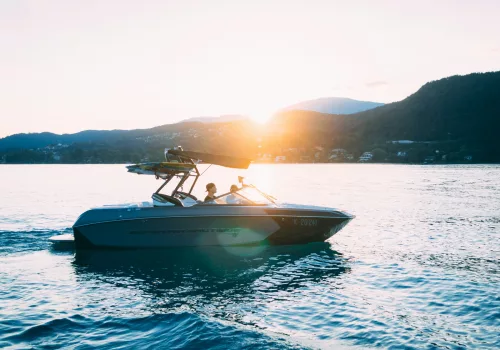Planning a beach wedding is both an exciting and intricate task, filled with unique opportunities and challenges. Each detail, from the location to the guest experience, requires careful consideration to ensure that your special day is as breathtaking and seamless as the setting itself. When scouting the perfect beach location, it’s essential to weigh various factors that will contribute to the ambiance and logistical ease of your wedding. Beaches vary widely in terms of accessibility; some may require a short hike or boat ride, while others are conveniently located near parking facilities. Consider your guests’ needs, especially those who may have mobility issues. A beach that’s too remote might deter some guests from attending. Privacy is another crucial element—some beaches might be bustling with tourists, which can detract from the intimacy of your ceremony. It might be worth considering private beaches or those with secluded coves for a more exclusive feel.
Weather Contingency Plan
The unpredictability of weather is a significant consideration for any outdoor event, and beaches are no exception. Collaborating with a local meteorologist or using reliable weather forecasting apps can help you anticipate potential weather changes. It’s wise to have a tent rental on standby, offering not just rain protection but also shade on a particularly sunny day. Some couples choose to have their wedding during the off-peak season to avoid crowds, but this can come with increased weather risks. For instance, autumn might bring storms in some coastal areas. It’s also beneficial to have an indoor backup venue nearby. Look for beachside resorts or community centers that can accommodate your guest list at short notice.
Real-Life Example: A Weather Success Story
Consider the experience of Emily and Jake, who planned their beach wedding in Florida during hurricane season. By working with a local event planner, they were able to secure a nearby hotel ballroom as a backup and monitored weather updates via apps like Weather Underground. When a storm rolled in, they seamlessly transitioned to the indoor venue without a hitch, ensuring their day was still perfect.
Attire and Footwear
Choosing the right attire for a beach wedding goes beyond aesthetics; it requires practical considerations as well. Lightweight, breathable fabrics such as linen, chiffon, or organza will keep everyone comfortable in warm weather. Brides might want to consider a dress with a shorter hemline or one that can be easily bustled to avoid dragging through the sand. For the gentlemen, light-colored suits or casual linen attire can suit the relaxed beach vibe. Encourage guests to dress in beach-appropriate attire by including suggestions on the invitation. Providing a shoe station with flip-flops or sandals can be a delightful touch, allowing guests to swap their formal footwear and enjoy the sand between their toes.
Practical Tip: Dress Rehearsal
Before the big day, conduct a mini dress rehearsal on the beach. This is especially useful for the bride and bridal party to practice walking on sand with their chosen footwear and attire. It can also highlight any adjustments needed to prevent wardrobe malfunctions.
Decor and Setup
The natural beauty of a beach provides a stunning backdrop that requires minimal decoration. Yet, a well-thought-out decor plan can enhance the natural setting. Incorporate elements such as seashells, starfish, and driftwood into your centerpieces and aisle decorations. Use colors that reflect the sea and sky—soft blues, sandy beiges, and whites can create a cohesive aesthetic. Lanterns or fairy lights can add a magical touch, especially as the sun sets. Collaborate with a local wedding planner who specializes in beach weddings for creative ideas that align with your vision. Setting up a designated area for the ceremony and reception with clear walkways can help manage the flow of guests and keep the event organized.
Step-by-Step Decor Planning
- Identify Your Theme: Decide if you want a nautical, bohemian, or elegant beach theme.
- Select Your Color Palette: Choose colors that complement the natural surroundings.
- Source Local Materials: Use locally sourced materials to enhance authenticity and sustainability. Driftwood or locally harvested flowers can add a unique touch.
- Lighting Strategy: Plan for evening lighting with solar-powered lanterns or LED fairy lights to ensure an eco-friendly setup.
Permits and Regulations
Navigating the legal and logistical requirements of hosting a beach wedding is crucial. Start by contacting the local city or county offices that govern the beach area to understand the specific permits needed. This may include a special event permit or a noise permit if you plan to have amplified music. Be aware of the environmental guidelines, such as restrictions on structures, decorations, or the use of certain materials that might harm the ecosystem. Some beaches have specific cleanup requirements, so hiring a team to ensure the site is left pristine can be a smart move. It’s also advisable to check the rules regarding alcohol consumption, as some public beaches have strict policies.
Case Study: Navigating Permits Smoothly
Sarah and Alex faced challenges when planning their San Diego beach wedding. With the help of a local wedding coordinator, they obtained all necessary permits well in advance, avoiding last-minute stress. The couple also worked with an eco-conscious event company to ensure compliance with environmental regulations, leaving the beach spotless after their celebration.
Vendor Coordination
Beach weddings present unique challenges for vendors, from the logistics of setting up on sand to dealing with weather-related issues. Meet with each vendor to discuss their specific needs and concerns. For instance, caterers might require a tented area for food preparation, while photographers will need to plan for the best lighting conditions. Provide a detailed timeline and layout to all vendors, highlighting key areas such as the ceremony space, reception area, and guest seating. This helps in coordinating their activities and ensuring everything runs smoothly. It might be beneficial to hire a wedding coordinator who specializes in beach weddings to oversee these logistics, allowing you to focus on enjoying your day.
Vendor Tips
- Caterers: Ensure they have a clear path to the setup area and consider how sand might affect service.
- Photographers: Opt for professionals experienced with outdoor lighting challenges.
- Florists: Discuss the durability of floral arrangements in sun and wind conditions.
Guest Comfort
Ensuring your guests’ comfort is key to a successful beach wedding. Providing essential items such as sunscreen, water bottles, and hand fans can make a significant difference. Set up shaded areas where guests can retreat from the sun, using canopies or umbrellas. Offering custom parasols or personalized beach hats as wedding favors can add a charming touch while also serving a practical purpose. Communicate the beach setting in your invitations, encouraging guests to bring items like sunglasses or sun hats and to wear appropriate attire. Consider arranging transportation for guests, especially if parking is limited or if the beach is somewhat remote.
Real-World Insight: Guest Comfort Innovations
One couple, Lisa and Tom, included a “comfort station” at their wedding, featuring a small tent with refreshments, a first-aid kit, and even a few beach games for kids. This thoughtful touch was a hit, ensuring all guests felt cared for and entertained throughout the day.
Sound and Music
The open-air environment of a beach can be challenging for sound quality, with wind and waves potentially interfering with audio clarity. Work with a sound technician who has experience in outdoor events to set up a reliable sound system. Position speakers strategically to ensure sound carries without overwhelming the natural ambiance. Conduct a sound check at the time of day when your ceremony will take place to adjust for the natural acoustics and ambient noise. If hiring live musicians, ensure they are accustomed to playing in outdoor settings and are equipped to handle the elements.
Quick Tip: Microphone and Music Setup
Consider using wireless microphones for the officiant and any speakers to avoid tripping hazards with cables. Test all equipment on-site at least a day before the event to troubleshoot any issues.
Additional Considerations
Timing and Lighting
Consider the time of day for your ceremony. A late afternoon or early evening time slot can offer more comfortable temperatures and stunning sunset views. Coordinate with your photographer to capture golden hour shots. This timing also allows for a more relaxed post-ceremony reception under the stars, with the option for a bonfire if permitted.
Transportation and Parking
Arrange for shuttle services if parking is limited or if the beach is difficult to access. This will help avoid any last-minute transportation issues and ensure guests arrive on time. Consider coordinating with local transportation companies early in the planning phase to secure enough vehicles and drivers for your needs.
Eco-Friendly Practices
Embrace sustainable practices by using biodegradable or reusable materials in your decor. This not only helps protect the environment but can also add a unique touch to your wedding. Examples include using bamboo utensils, recycled paper invitations, and sourcing organic local produce for your menu.
Rehearsal and Preparation
Schedule a rehearsal at the beach so everyone involved in the ceremony understands their roles and movements in the sandy setting. Ensure your bridal party and officiant are comfortable with the setup and any unique aspects of the location. This rehearsal can also serve as a test run for your attire and sound system.
Sunset Ceremony: Capturing the Perfect Moment
Timing your ceremony around sunset allows for breathtaking photographs and a romantic ambiance. Check local sunset times and plan your ceremony start time accordingly, allowing for delays and ensuring your vows are exchanged just before the sun dips below the horizon.
Interactive Guest Experiences
Consider incorporating interactive elements for guests, such as a DIY cocktail station with tropical drinks or a photo booth with beach-themed props. These can serve as both entertainment and a memento of your special day.
Planning a beach wedding involves many moving parts, but with thorough preparation and attention to detail, you can create a magical day that reflects the beauty of your love and the stunning seaside setting. By addressing these considerations, you can ensure a smooth, enjoyable, and memorable experience for you and your guests.



